#then has a thing with franciszka
Explore tagged Tumblr posts
Text
Deciding between PruHunLiet on the Wall or some wlw PolHun and separate PruLiet on the Wall for the Asoiaf AU right now. Either way, Erzsebet escapes her betrothal to Vlad that neither of them wants lmao
#asoiaf au#in the ot3 scenario she disguises herself and joins the night's watch undercover to see gilbert again#in the polhun scenario she becomes a lady in her own right after her uncle dies and cancels the betrothal#then has a thing with franciszka#trying to live their best sapphic lives in the riverlands in the face of possible war#something about gil and tolys' exes getting with each other and vice versa is lowkey funny to me but also interesting#erzsebet and vlad's families are the blackwood/bracken rivalry of the riverlands i cannot be convinced otherwise#i changed my mind about him being from the north lmao#it just fits
7 notes
·
View notes
Text
IT IS TIME
I said I was going to be 'annoying' about the fic I am writing once I got home from work. Well, I am home from wooooork.
I'm gonna ramble a little, so it'll all be put under a read more. I'll be kinda vague with some things, but I'm also gonna indulge a little coz I was not lying when I said I am fucking excited for this fic.
Anyways...here. We. Go!

It's a series! That's right. A series. Was it planned? Fuck no! Originally, it was only going to be this one chaptered fic. But then I had this idea to make a little prologue for a certain duo. Then I had this idea for 8 shorter fics. And THEN I had the idea for a second chaptered fic. *sigh* Yeah. I did that to myself.
There is a rough outline and other notes for the first fic in the series, but I am still flying by the seat of my pants with this one, folks. And some things I planned? Looks like they aren't happening! Things I didn't plan! They're happening! I have no control of these little shits, and I am okay with that. Kinda work better that way.
It is UTMV! Yaaay! I was a little apprehensive at first about diving myself into fic writing for this fandom, especially since I haven't written anything since 2020 and I have seen some people get a little butthurt about people not "writing these characters right". But you know what? I don't care. I have seen good fics/artwork with canon depictions, fanon depictions, and mixtures of both. There's a bunch of cakes out there to devour! Might as well throw mine out there!
Finally have a title! The series is called Reunion in Chains (RIC for short). The first chaptered fic is called Immured. The rest...are surprises. >:3
At the end of each chapter, I'll have a little author's notes that will be kind of like a behind the scenes type of deal. Fun little extra tid bits, if you will. Which I have never done before. Kinda excited about it, too.
Currently working on Chapter 4, which is being a royal beast. It's so far the longest chapter. Though, if the pattern of each chapter being longer than the last continues, it'll lose it's crown real soon.
How long will it be in total? No clue! Again, I'm just winging this bitch! Though I do have up to 6 chapters titled! Yippee!
There will be 4 ships in total: 1 that is mentioned real quick, 1 that is a secret until around chapter 6 or 7, 1 that is established before the start of the fic and is hinted at until it is outright said at a certain chapter (I am vibrating in anticipation to get to that point), and 1 that is slowly happening throughout in a more subtle way.
Possible rating will be M. Mostly for swearing, threats of violence (mostly physical, but there will be vague sexual ones as well), actual violence, mentions of past abuse, blood, and electrical punishment (you'll understand in due time).
I created 6 OCs specifically for the first fic that are fleshed out and have names! They are:
Ruperto - Human (he/him)
Taran - Spider monster (they/them)
Franciszka "Franny - Bunny monster (she/her)
Lilium - Flowey variant (he/him)
Abel - Dog monster (he/him)
Mimsy - Cat monster (they/them)
There are other random background kind of OCs that will be mentioned, but they are so minor that all they have is a description. No names. For now.
Lilium is my favorite to write so far. He is a fucking shithead and I love him!
There will be 2 additional OCs (that I know of thus far) that'll be created for the series, though they are going to be in the second chaptered fic. So no development yet.
Immured will be in Dream's POV! Which, not gonna lie, has been fun to do. Boy has a lot of angst potential, and I am running with it!
This includes having 1 dream that is a flashback, and 1 that mixes up a flashback and internal guilt. And plenty silent mentions of the incident.
Fun fact: There will be a lot of strikethrough in several chapters. This is very intentional! Let's see if anyone can figure out the reason why.
Error, by far, is the hardest one for my to write! I wanted to try to show his stuttering/glitches...but that is not easy to do. Sometimes I'm like "oh god, this is too much, I might have to fix this later", and other times it's "yeeeees I love how that looks, it's perfect". We shall see how it all ends up in the end after the millionth edit. (I have edited these chapters so much in the middle of writing, you have no idea.)
Ink is also so goddamned hard to write! Mostly because I want to write him as a silly little guy instead of someone reacting to the really shitty situation everyone had found themselves in, as well as having to turn off le emotions. For really important reasons. Promise.
Spoiler: Yes. Dream and Nightmare do make-up. Because I want them to. Badly.
Nightmare is also fun to write! Especially when I get to make him a sassy bastard.
Dream and Dust future smoking buddies? More likely than you think.
People underestimating Dream because he's the Guardian of Positivity and therefore there is no way he would be capable of hurting someone? 😏
Little sprinkles of a different take of the OG apple incident, with a full exploration in one of the side fics where the twins have a long, proper talk? 😏😏
The pre-Immured ship being absolutely cute here and there? And being that much more cute in their relationship 'prologue' fic, their side fic, and in the second chaptered fic? 😏😏😏
Dream and Nightmare having specifically adorable nicknames they used for each other when they were kids and they start using again as adults? 😏😏😏😏
And that's it! Though, before I end this rambling mess that I had to indulge myself in...I thought I'd leave some of my favorite snippets. I won't leave any context nor where they're at in the story. Enjoy!
Dream perked up, sockets wide and golden tears threatening to spill. Staring back with familiar shyness, Nightmare continued to whistle. As if he was waiting for Dream to resume the song. So he did. The twins spun the songs they used to hear at their tree – knowing their parts as if they had only performed it yesterday. Pure happiness squeezed within Dream's chest, ready to choke the air right out of him at any given second. It was nothing huge or life changing. Truly insignificant to anyone witnessing. But to Dream? It meant everything.
“Uh, excuse you? Nothing about me is straight. Dunno why you would think my priorities would be. And having nom-noms is a great priority! Right, H?”
But his face...oh god, his face. It was always different somehow in the way it was obscured, reminding him that he couldn't remember his twin's fucking face .
Nightmare scoffed right back – grin stretching wide and venomous. “Is that so? Well, why don't you enter my cage and see how big my bite is? I promise...I will leave some flesh attached, youngling.”
“So! Does anyone have any ideas? We can spitball! No idea is stupid!”
Taking it as a challenge, Killer smirked and casually sprawled out on the floor. “We can try to seduce them?”
“Except that one! That one is pretty stupid.”
And Dream began to wail.
Wail like the little boy who lost everything centuries ago.
#void talks#nic talks#fic goodies#tada!#my immense rambling!#probably too much#but oh well!#enjoy if you decided to dive in
2 notes
·
View notes
Text

( toby regbo, genderfluid, they/she/he, 29) ** ♔ announcing augustus windsor, the crown prince of england ! in a recent portrait they seem to resemble toby regbo. it is a miracle that they survived the last five years and for that reason, they are against the kingdoms working together. reflecting on them now, they remind me of putting out matches on your tongue, clasping both hands on your mouth to keep from screaming, the burn of rejection and the burn in your lungs– they both feel the same by now.
basics.
full name: augustus henryk dawvid windsor nicknames: auggie, age: 29 years old gender: genderfluid pronouns: they/them (default, used most often in neutral or mildly positive interaction), she/her (much more familiar, should only be used by those close to her), he/him (doesn’t hate this one but if he only uses this with you then he hates you) orientation: gay status: formerly betrothed (x3)
bio.
(tw for toxic family dynamics, pregnancy complications, birth trauma, postpartum death, chronic illness, mental illness, murder, assassination, illness, near death experience)
your story starts before you're even an idea. your mother is the youngest boleslawa princess, and the rumors about the afflictions in the family are unavoidable. everyone knows the boleslawa women tend to be mad, but there's an added element of...delicacy. there's no way to know until it happens, but the line is marked for tragedy. years before you're even born, princess augustyna runs off without so much as a warning. your mother franciszka is impacted by the loss more than she says. not that you'll ever know. she marries your father, all the pomp and circumstance of a royal wedding in full swing, though allegedly she enjoys little of it, overwhelmed by the people and well wishes and reality of life progressing without her sister. the occasion is as grief inducing as it is exciting. she leaves her home, arrives in a new land with only a fraction of the staff she'd grown used to. she's given a new, english name --francesca, which isn't the most egregious butchering, but a butchering nonetheless-- and a new, english staff --she keeps her lady in waiting, and the woman she insists will be her children's governess, claiming to trust no one else for such important tasks-- and she settles in to her new, english home. it seems like no time at all before she falls pregnant for the first time.
the pregnancy is, in a word, harrowing. her temperament had always been fluctuating, and this fluctuation only grows worse as pregnancy hormones run their course. there's no way to know this in this day and age, but in modern times people with your mother's condition will be aware beforehand of this risk, and some will have options to potentially alleviate these things. your mother, however? she's about 200 years too early for her condition to even be recognized. so she suffers mostly alone, her trusted lady in waiting and future governess feeling like the only unwavering support she has.
if the pregnancy is harrowing, though, the birth is somehow worse. it arrives early, and this terrifies your mother, though her concerns are quickly hushed. it's only a couple of weeks, they say. it will be fine. they don't look at her when they say it, though. it's an arduous ordeal, but she's assured the first one is always the worst. nineteen hours. nineteen hours it takes you to make your appearance into the world. perhaps the greatest relief is that when you do cry, it is loud. loud and healthy. the second relief is that you are a boy. the first heir to the throne. your mother names you augustus, and she's relieved to love you as intensely as she does. she'd heard heartbreaking stories of mothers not bonding with their babies despite all the best efforts, and she'd worried her imbalances could leave her to the same fate. but the bond feels instant, and strong. the month of recovery afforded to balance her humors once more is difficult. the birth had been taxing emotionally and physically, and there is an unspoken fear the next one may be worse. in another time, the warning signs would have been found. women like your mother would be alerted to their high risk nature of pregnancy, and, again, would have options to explore. your mother, though? she is afforded no such luxury. they can worry, prepare for the worst the best they can, but they have no way to really help. when your mother falls pregnant a second time, the worry rears up.
you're not even a year old when your brother maxim is born. it's another difficult birth, but in the momentary afterglow, they think the worst is behind them. true to reassurances, he does not take as long as you did. a second boy. a second heir. the joy takes a sharp turn when your mother's condition rapidly worsens. your governess never tells you what went wrong, waves it off and says it's of no concern to you as you won't be bearing children, so your mother's fate would only upset you. what matters is that this time your mother does not survive, and the two of you will not remember her. you almost think you do, sometimes, but as you get older those flashes of memory fade to almost nothing. you only know what she looks like from portraits. your governess says you look just like her. you have to take her word for it. you and your brother grow up as separated as the two of you could possibly be. your mother had insisted that your governess should raise both of you, but your father struck that down. you were too attached to deal with anyone else, but maxim is given his own governess, a proper english governess to raise him to be a proper english prince.
you are not brought up the same way. your governess speaks to you only in polish for the first five years of your life, and to this day despite a lifetime spent on english soil some of your vernacular tinges with the accent of a place your mother left behind. you pick up english from everyone else around you. you have to. your frustration grows when they stare blankly in response to your polish, and people will say later these are the first signs of what is to come. that's not accurate, but they won't know that for a while. you're just a frustrated toddler, nothing more. your governess is not the most coddling of women, soothes you when you are young but encourages you to steel yourself as you get older. still, she sees to it that your education is exceptional. under her tutelage you pick up dutch, french, and spanish. you learn history, geography, policy, and diplomacy. you might not be everything your father had hoped for, but you come close. your father remarried when you were very young, as was expected of him, and while you don't like your stepmother, you don't resent her at first. the same goes for her sons. you love your brothers. thing just...complicate.
you're six when the first complication arises. your mother had had asthma as a child, and a tendency to fall ill with coughs and fevers, and a difficulty breathing that didn't alleviate even as the attacks grew more infrequent. you develop a wheezing and a difficulty breathing that your governess recognizes as one in the same. she tries not to change too much in your life, but your first serious attack marks an end to some of that freedom. you're monitored closely in the summer and spring, but fall and winter are strict. you're all but housebound during those times, unable to go out nearly as long as maxim can. your governess tries to explain to you that this is for your health, your safety. but you're a child. you don't care. you want to be outside in the gardens with your brothers, with your friends. you don't keep a large circle like your brother does, the golden miracle prince that everyone worships just for living. your circle is smaller. you like it that way. nilani is the duke of york's only daughter, and the two of you are fast friends. another duke is the reason you meet ambrose, and you don't know it then, but your fates are intertwined, a whirlwind of connection and closeness and tragedy and a lesson in moving on. francisco jonsson will round out your closest circle in your preteen years. the four of you might look like an odd bunch together, but they come to define your childhood and adolescence.
thirteen, though. thirteen is when more is piled on. you almost don't even notice your first spell, a deep tiredness in your bones you chalk up to, perhaps, feeling under the weather. you're a sickly child. it makes sense to you. but then there is the mania. you become aggressive, belligerent, prone to flights of fancy and what your governess fears are delusions not unlike those that would overtake your mother. she's right, of course. she's always right. or perhaps you're just especially cursed. max never dealt with asthma. max is untouched by the boleslaw madness. max is the golden prince, the people's prince, and you? you're a pole in the english line of succession. does anyone care that you also lost your mother? does anyone see how much work you have put in to be the best future king you can be? does it matter that you were a child too, and you never asked for any other this, and that their cruelty only drove you further away?
your governess is sent away when you are seventeen. you're too old now, you don't need her. you're a man now. what use is his governess to a grown man? you're inconsolable when she tells you she will be leaving. no one else thought to warn you, but she knew better. she knew you. she loved you. she was always firm that she was not your mother, she would never try to be your mother, but she loved you as deeply as if you were her own. you break in a way you have not since you were small, and this time she lets you, just holds you as you wail like a child. she cries too, which is probably why she lets you get away with it. this is not like when a governess might find continued work in the castle. your governess was under the employ of your mother, the princess of poland, and though gone she might be, your governess had refused to abandon her assignment. refused to abandon you. but you've outgrown her, and her duties are to poland. you're told not to see her off when she departs, and it feels like an eternity before you come back to yourself. you feel foolish for being so hurt, and that's not helped by your father reminding you this outburst is foolish. still, you can't help but feel bad for max as well. he's equally as attached to his governess.
but it doesn't work out like that, does it? no, not for prince maxim. not for the people's prince. you learn to know your place as crown prince and stay within the parameters set before you. what does max learn? he learns he need only say the word and he can have whatever he wants, even the things you are denied. this is the first time the resentment that has simmered just below the surface has fully oriented to max. up to this point, you've been angry at everyone else. your father, for favoring max and overlooking you. your stepmother, for thinking she could come and mother you. the people, for never seeing you or your worth. but now? max gets everything he wants just by asking for it. you are called foolish and ridiculous for an imbalance you had no control over. this wedge had been hammered more firmly in place as the two of you had grown, and this? this is the final strike. you pull away. nilani is fond of max, and you don't discourage her from that, not wanting to be cruel to her, but you do everything else you can to shut max out entirely. if you never have to speak to him, never have to look at him, maybe things will be better. maybe on some level you can be better.
your first betrothal is expected, but still a nightmare. she's so...god. she expects to be courted and lavished with attention and it makes your skin crawl. you've never cared for this aspect of your duties as a prince. you know it's expected of you to marry and have children, but does everyone else feel this disconnected from it? you know, objectively, she's beautiful. but when she laughs at your half hearted jokes that aren't that funny, or reaches for your hand, or looks up at you through her lashes in what you think is meant to be a flirtatious gesture you feel...nothing. a little bothered. uncomfortable. you don't breathe a word of it to anyone but your friend group, obviously. the question you get in return is an unexpected as it is glaringly obvious once you stop to actually think about it. is it her, or is it women as a whole? you've never given it much thought, but. it might just be women. you hardly know what to do with this revelation, which means you make the stupid and impulsive choice and have the betrothal broken. you come up with some nonsense about not thinking she's what's best for england and finding her unsuitable for the station she would be coming into.
you don't know when something between you and ambrose shifted. it's the sort of thing that happens so gradually, it feels like a natural progression. like you were always meant to fall together like this, a first love that felt exciting and new yet still comfortable and lived in. the four of you had always been close, and you'd been worried acknowledging your interest might shake that up. so of course he's the one to act on it first, and--
and you're a kid in love. barely 19 and so much has changed in such a short space of time and it doesn't fare well for your mind, admittedly, but ambrose knows. he knows this part of you. he sees it and he sees you and he stays anyway. that's a plus to falling for one of your best friends, you suppose. your second betrothal is set up when you're 22, and you do what you can to delay the inevitable. she's...less suffocating, but you still know marrying her would mean throwing away everything you've only just realized you wanted. you know you and ambrose can never have this. he has his own duties to marry and have heirs, as do you. still, you try to buck against it for as long as you can. your whole life you've let duty and tradition dictate to your life to your own detriment. this is the one thing you want for yourself. you'll dig your nails into it if you have to. plague sweeps through two years later, and life comes to a standstill.
with your delicate constitution you're all but confined to the palace grounds, any diplomatic travels or desires you could have had to go out and help shut down. max goes out, because of course he does. the people's prince has to be so selfless, right? you feel bad for not minding that he's gone, but you deserve this, in a way. for the first time in your memory, you don't have to see him or hear about him or deal with his little sycophant "friends". nilani also goes off, and fran needs to tend to their people, so that just leaves you and ambrose. he still finds ways to talk himself inside, or be snuck in when the time calls for it. you learn to do your own disappearing acts, learning how long you can be gone before people will notice, where the best places to slip off and back on to the grounds are, when the guards are least likely to notice --or in some cases, more likely to look the other way-- and, honestly? this feels like a glimpse into what life could have been like for you if you didn't have apollo himself for a younger brother. you're no more beloved by the people than you've been before, but it's still better than the way it seemed they almost tried to pit you against each other.
but this is your life, so when something almost good happens, misfortune is never far behind. you do come down with the plague, and the only bright spot is this is what drives the dissolution of your second betrothal, on the assumption you won't survive so they'd best find someone else. now all you have to do is actually survive and you'll be home free. it's no small feat, though. you can't keep track of how many days or weeks you're laid up, often too delirious with fever to even register the passage of days. ambrose comes by, but you couldn't say if it was twice or six times. you don't even notice when he abruptly stops coming, stops inquiring, and the servants are whispering. no one wants to alert you, to alarm you. if this is to be the end, no one wants you to go with a broken heart. as it turns out, though, you're not quite so easy to kill. you do recover, and it feels like an eternity before your head clears enough to realize his absence. you're nearly frantic trying to ask about him. had he also taken ill? was he going to recover? why had no one told you? the reality is gutting. he'd been killed, put down like a dog and no one told you until well after he'd been buried. if they thought it would be better to wait to tell you, they were wrong. you fluctuate between melancholia and rage, for what feels like an eternity.
and now? an announcement of a summit? you'd wanted nothing to do with it, tried to argue it was a waste of time to expect any sort of camaraderie when the plague and disasters had shown people's true colors. unsurprisingly, no one listens to you, and off you all go to switzerland. and what do you get there? another betrothal, another assassination, your brother just avoiding the scandal of a child born out of wedlock, your brother's impromptu secret marriage to avoid such scandal, a niece born and that woman coming here to care for her. you're learning some wounds don't ever fully heal. parts of you are going to be broken forever, always the bitter, angry child you'd learned to be. you don't think you fully remember how to be anything else.
1 note
·
View note
Photo
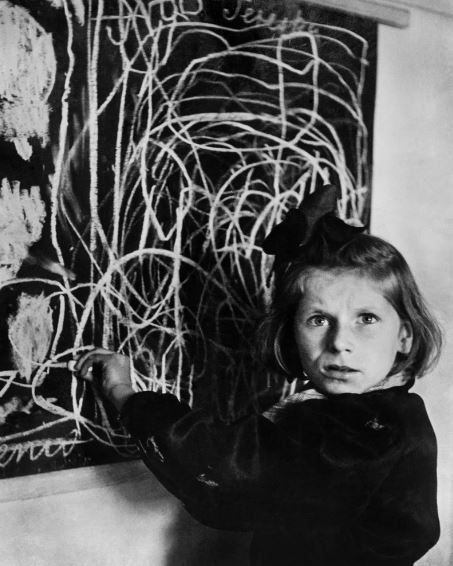
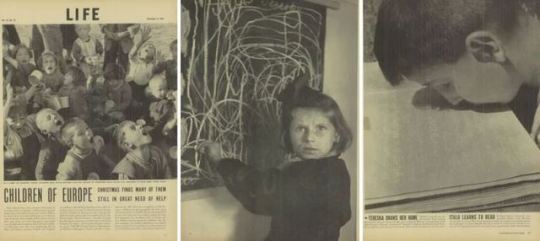
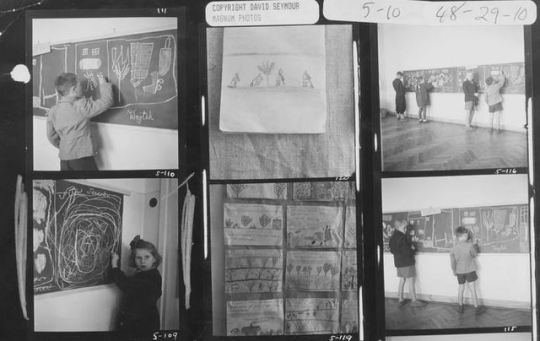
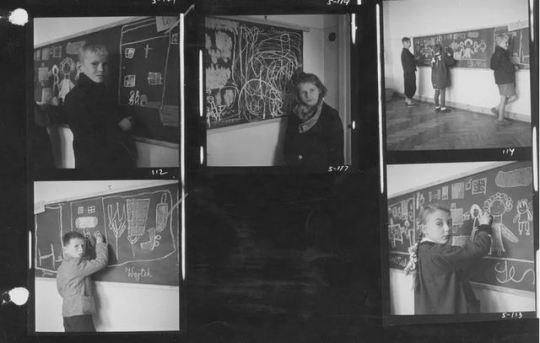

Unraveling a 70-Year-Old Photographic Mystery
“An extraordinary picture taken in 1948 by David ‘Chim’ Seymour, one of Magnum Photos’ co-founders, has since been seen by millions: first, it was published in LIFE magazine where the caption read in part ‘Children’s wounds are not all outward. Those made in the mind by years of sorrow will take years to heal.’ Then it was selected by Edward Steichen for his legendary exhibition The Family of Man. This image of Tereska drawing her home has fascinated many and has become emblematic of World War II.
In the Spring of 1948, when Chim was sent by UNICEF as a special correspondent to report on children in five European countries, 13 million children of Europe had survived World War II. They were homeless and orphans, many of them physically wounded as well as mentally traumatized. As a new retrospective of Chim’s photographs opens in Israel at Tel Aviv’s Beit Hatfutsot Museum, it seems like a perfect time in history to take a new look at Tereska’s picture.
In a school for ‘backward and psychologically upset children,’ as Chim states in his story’s captions, Tereska, then seven or eight years old, is standing in front of a blackboard. As we see in Chim’s contact sheets from a pinned notice on the blackboard, the teachers’ assignment was ‘To jest dom’- ‘This is home’.
That is what children were supposed to draw, but Tereska could only trace in chalk a tangle of frantic lines. Her haunted eyes reflect her confusion and anguish. Tereska’s identity has remained a mystery for almost 70 years.
Teresa Adwentowska came from a Catholic family. She was one of two daughters of Jan Klemens, who was an activist in the Polish Underground State, the Resistance. During the Warsaw uprising (August-October 1944), he was heavily beaten and all his teeth were broken by the Gestapo at their Warsaw headquarters and prison. During the war, Tereska’s mother Franciszka did her best to make ends meet, for instance visiting the Jewish ghetto in order to trade goods.
During the bombing of Warsaw by the German Lutwaffe, Tereska’s home was destroyed, and her grandmother was most likely shot by Ukrainian soldiers who were helping the Germans annihilate the Warsaw Uprising. Tereska was struck by a piece of shrapnel that left her brain-damaged. Fleeing Warsaw after the bombings, four-year old Tereska and her 14-year-old sister Jadwiga spent three weeks trying to reach a village forty miles away from Warsaw – on foot, in a war-ravaged country. They were starving. That episode left her with an insatiable hunger, and her physical and mental condition steadily deteriorated. During the 1954/1955 school year, she had to be sent to a mental asylum in Świecie (about 190 miles from Warsaw). Since her early childhood she had loved drawing, mainly flowers and animals. As a teenager she got addicted to cigarettes and alcohol, and became violent towards her younger brother. Since the mid-sixties, she spent her life at the Tworki Mental Asylum near Warsaw; the only things that meant anything to her were cigarettes, food and her drawings.
In 1978, at the Tworki Mental Asylum, Teresa Adwentowska met with a tragic death: she accidentally choked on a piece of sausage that she had stolen from another patient.
Chim’s photograph of Tereska, which has become a symbol of the fate of children during war and has inspired the Tereska Foundation, remains one of the only portraits of her as a child. As if caught in the tangled web of her own chalk lines, she remained frozen in time: for Tereska, war never ended.” - Time Magazine
8 notes
·
View notes
Text
Illustration-based collage art: Vice feature artist Joanna Neborsky
Reposted from VICE written by Tanja Laden.
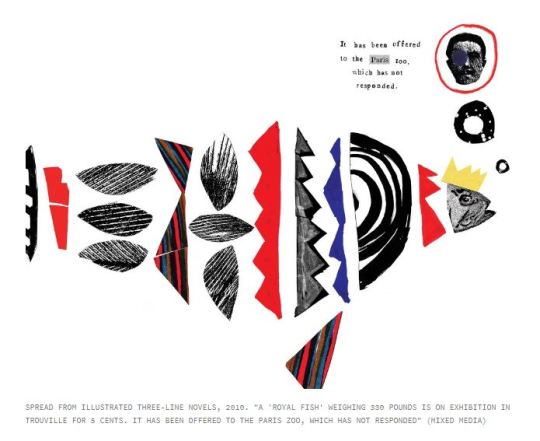
Informal personality quizzes are nothing new. Long before the proliferation of clickable multiple-choice tests from sketchy sites online, print magazines published all kinds of ersatz exams about everything from makeup to sex, and probably even makeup sex. (Vanity Fair still does, albeit more tastefully.) The truth is that the tradition of supplying intimate answers to bold questions originated as a Victorian parlor game, and in 1890, a teenage Marcel Proust (1871-1922) indulged in the fad. It's his handwritten manuscript, An Album to Record Thoughts, Feelings, etc., that inspired artist Joanna Neborsky to try to bring back the erstwhile tradition of providing longhand answers to life's profound questions.
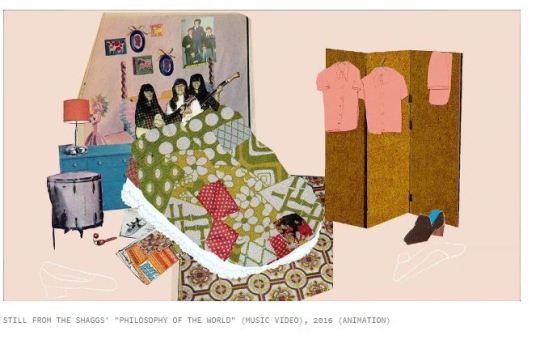
There really isn't a term to describe Joanna Neborsky's artistic style, which is a blend of antique spot illustrations, original drawings, and other collages reassembled into colorful yet mind-boggling pieces of meta clip-art. Maybe that's why she's the ideal artist to illustrate A Proust Questionnaire, a book of questions based on Marcel Proust's own answers in his confession album, as there's also not really a word to describe Proust's own writing except "Proustian."
"I would like for others to tell me what my style is," Neborsky tells The Creators Project. "Unfortunately, this morning, I keep landing on 'wacky.'"
Neborsky's career trajectory as an artist is an interesting one. She earned a degree in English at Yale, followed by an M.F.A. in Illustration at the School of Visual Arts. In a few years, she went from being an untrained artist to having her thesis in illustration published a year later as a book, Illustrated Three-Line Novels (2010). Maybe it's because her advisor was famed illustrator Maira Kalman, but most likely, it was Neborsky's witty take on grisly French crime blotters from the Belle Epoque that landed her the gig.
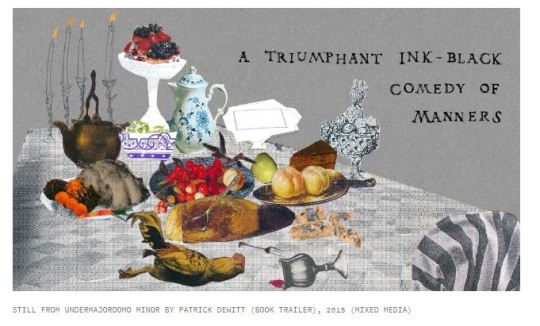
From there, Neborsky's career has taken off with a poster A Partial Inventory of Gustave Flaubert’s Personal Effects for The Paris Review, as well as caricatures of literary figures such as Colette and James Baldwin for A Reader’s Book of Days: True Tales from the Lives and Works of Writers for Every Day of the Year by Tom Nissley.
"If I’m going down anywhere, it’ll be as an X-acto- and- paste- and- construction- paper- and- assorted- pens woman," Neborsky quips, referencing the James Joyce quotation: "I am quite content to go down to posterity as a scissors-and-paste man."
Neborsky says she finds old magazines and books for her projects everywhere from the sidewalk to estate sales, library sales, and thrift stores, adding that she never cuts out the pieces of her findings directly, but copies them instead in order to keep the source material intact.
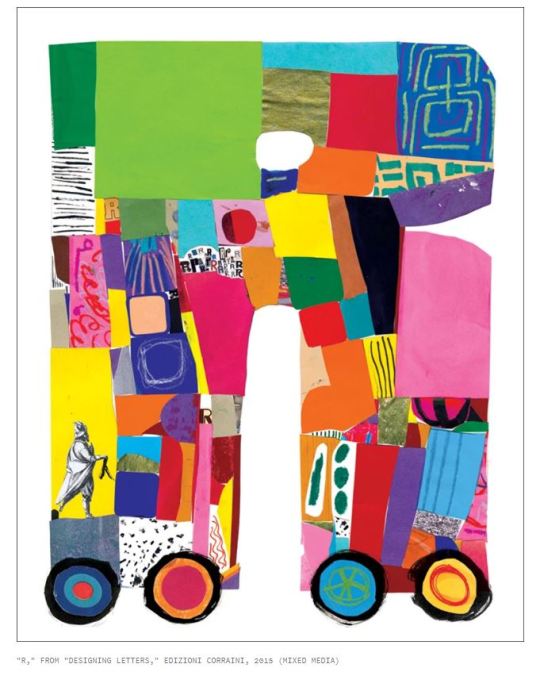
"When a freelance job comes in, I identify the theme or concept of the piece and raid my 100% randomly archived collection of photo cutouts, spanning historical eras, animals, buildings, machinery, textures, words, numbers–for fragments that could suggest, either individually or in concert, the subject at hand," Neborsky explains. "Or, if I know I’m unlikely to have the right cutout because the topic is utterly specific—say, semi-automatic weapons (for The New York Times), or the painter Gustave Caillebotte (for Vanity Fair Italia), to cite two recent examples, I move on over to the Pasadena library or The Last Bookstore and fire up the copy card. I set the cutouts next to one another in Photoshop to see if a relationship emerges, if a meaningful (versus merely textural) collage is possible. Then I draw or cut and paste the missing incidentals or accents to round out the scene."
When making art, Neborsky's goal is simple. It's "to tell a story; to make a viewer laugh; to make a little bit of beauty; (selfishly) to get lost in making." Less simple for her is listing her wide range of influences, which include Terry Gilliam’s collages and Andy Warhol’s children’s books. In fact, she has so many, she's made a list of them.
[2019 addendum: Neborsky is also inspired by Hannah Hoch, Franciszka Themerson, Maira Kalman and Betty Woodman.]
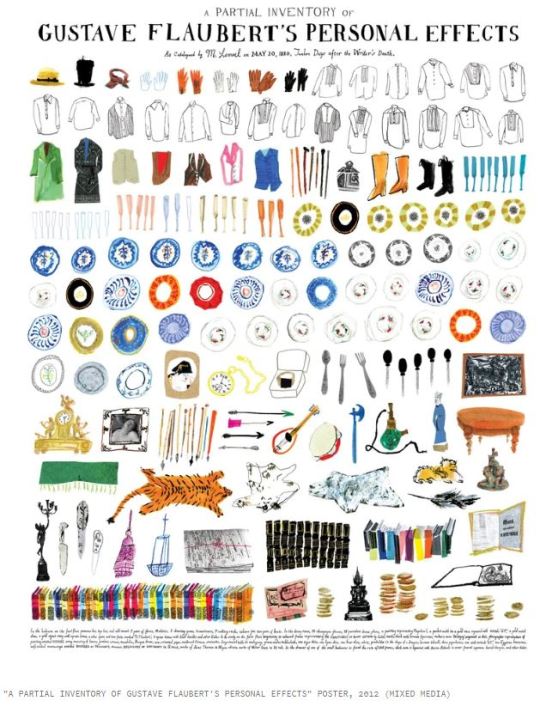
With such a worldly-looking portfolio, it's also interesting that Neborsky decided to come back to her native Southern California after studying on the East Coast and teaching in France. "I’m proud to be Californian, but nobody has ever mistaken me for one," she says. "My family’s roots are in the east, in Jewish Baltimore. Suburban San Diego, where I was born and raised, with its surf- and- SUV- and- smoothie- and- athleisure-based culture, never quite dug my scene. Whether my pessimism was Russian or adolescent, it didn’t matter; pessimism doesn’t play in sunny, bro-dawg San Diego."
Neborsky says she came back to Southern California partially because she felt she had maybe unfairly dismissed it as a youth. "From afar, Southern California started to gain back its luster that was apparent to everybody but morose teenaged Joanna—in my mid-twenties, living in New York, I began, for the first time, to crave the spaciousness, the Pacific, downtrodden glamour (specifically of Los Angeles), maybe a bit of the hedonism."
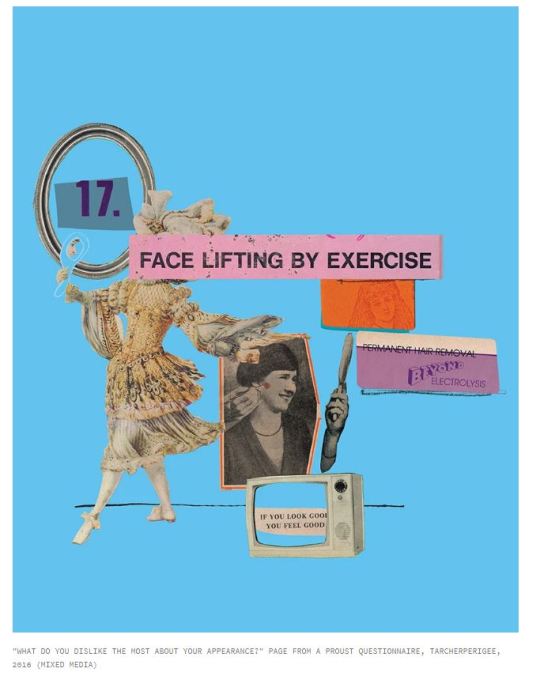
Like many of her fellow LA-based artists, Neborsky goes to yoga in order to take a break from her studio practice and realign. "And it’s usually there, in Savasana or some shape I am attempting to form en route to Savasana, that I get an idea or two that I smuggle back to the studio," she says.
"I will also say this: even after a decade flopping around New York, some of it in art school, I did not participate in an art scene until moving to Los Angeles. 'Participate' is probably even a stretch: in my shady Mount Washington home I maintain a solitary practice for faraway (usually New York) clients; at quitting time I visit with the LA art scene, in which most of my friends here are involved. It’s interesting and weirdly pressure-free to follow LA art doins’ as a commercial artist with no skin in the game. People are making so many great things here in weird little DIY art spaces, parking lots-turned-galleries, on mountaintops, the LA River. Even the blue-chip galleries in Culver City or Downtown (newly arrived to the consternation of many, I know!) calm me with their monumental sculptures and reliable air-conditioning. I don’t mean to be a naïve cheerleader, but I think so much of the work is good! Expansive (easier to make expansive things here) and intricate and ceramic and funny and painterly-sloppy and feminist and curious and rough-hewn and large-minded. I don’t know what I’m saying other than that I think I love art in LA, even as I’m an LA artist who doesn’t make LA art."
Visit Joanna Neborsky’s website here.
~
Les Femmes Folles is a volunteer organization founded in 2011 with the mission to support and promote women in all forms, styles and levels of art from around the world with the online journal, print annuals, exhibitions and events; originally inspired by artist Wanda Ewing and her curated exhibit by the name Les Femmes Folles (Wild Women). LFF was created and is curated by Sally Deskins. LFF Booksis a micro-feminist press that publishes 1-2 books per year by the creators of Les Femmes Folles including the award-winning Intimates & Fools (Laura Madeline Wiseman, 2014) , The Hunger of the Cheeky Sisters: Ten Tales (Laura Madeline Wiseman/Lauren Rinaldi, 2015 and Mes Predices (catalog of art/writing by Marie Peter Toltz, 2017).Other titles include Les Femmes Folles: The Women 2011, 2012, 2013, 2014, 2015 and 2016 available on blurb.com, including art, poetry and interview excerpts from women artists. A portion of the proceeds from LFF books and products benefit the University of Nebraska-Omaha’s Wanda Ewing Scholarship Fund.
Current call for collaborative art-writing: http://femmesfollesnebraska.tumblr.com/post/181376606692/lff-2019-artistpoet-collaborations
Current call: What does being a womxn mean to you? http://femmesfollesnebraska.tumblr.com/post/183697785757/what-does-being-a-womxn-today-mean-to-youyour
1 note
·
View note